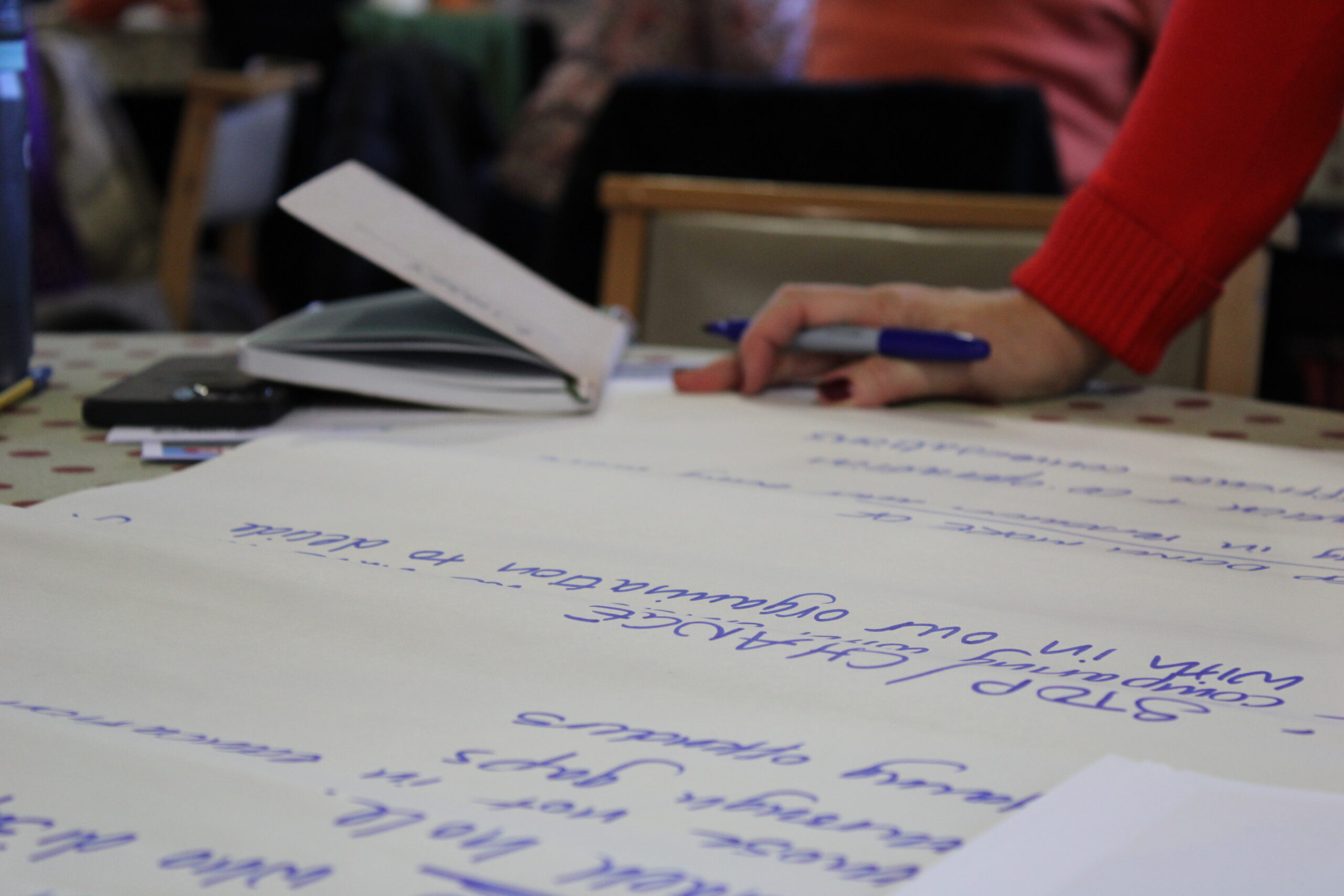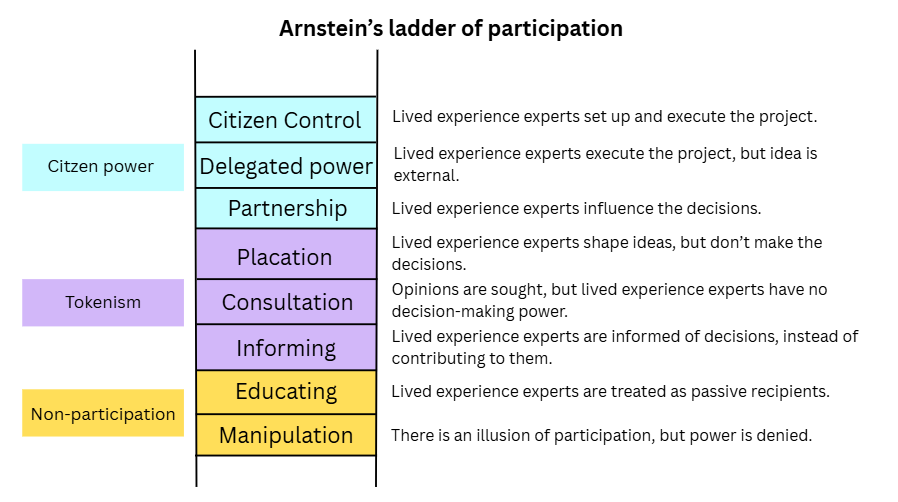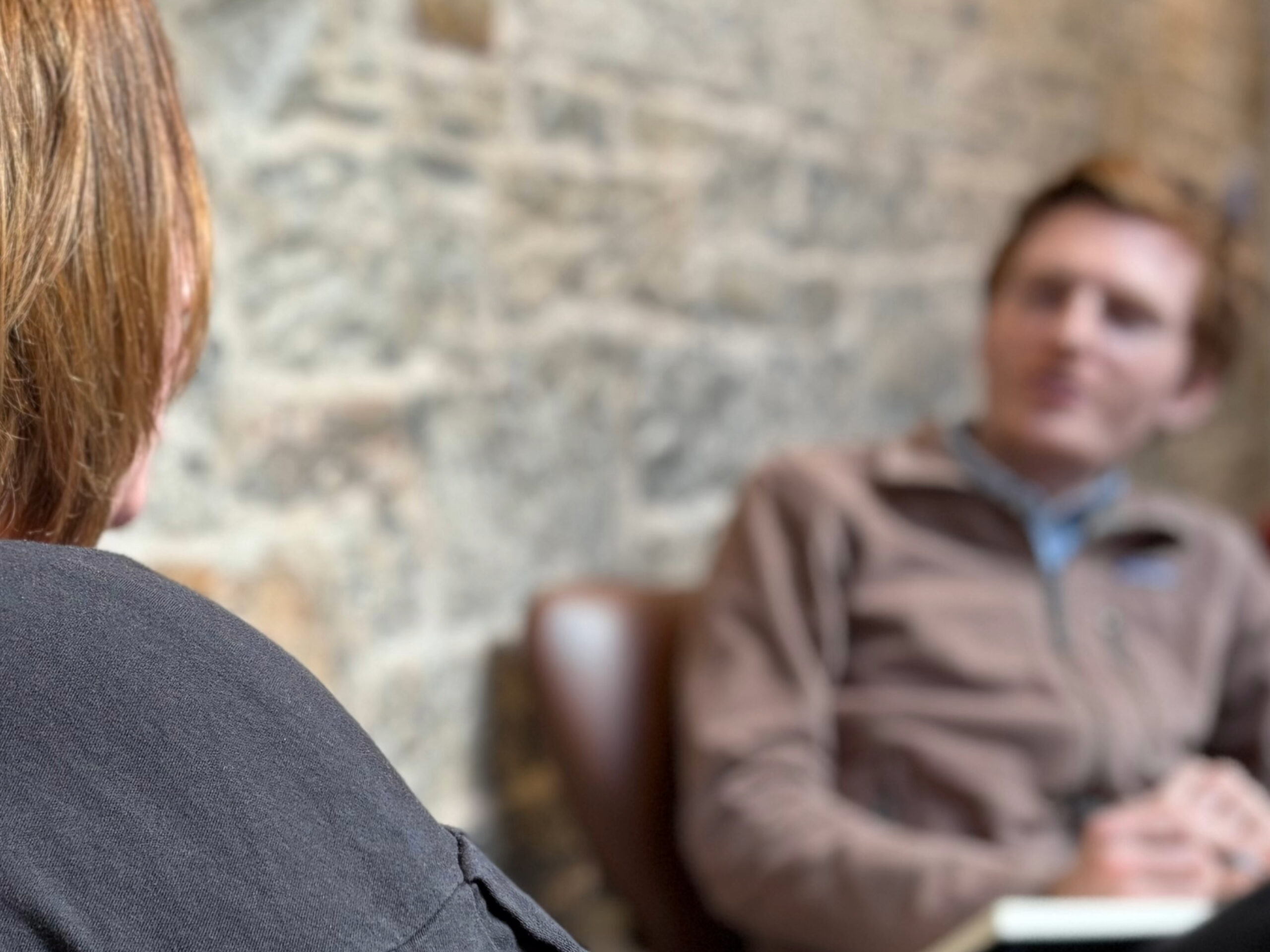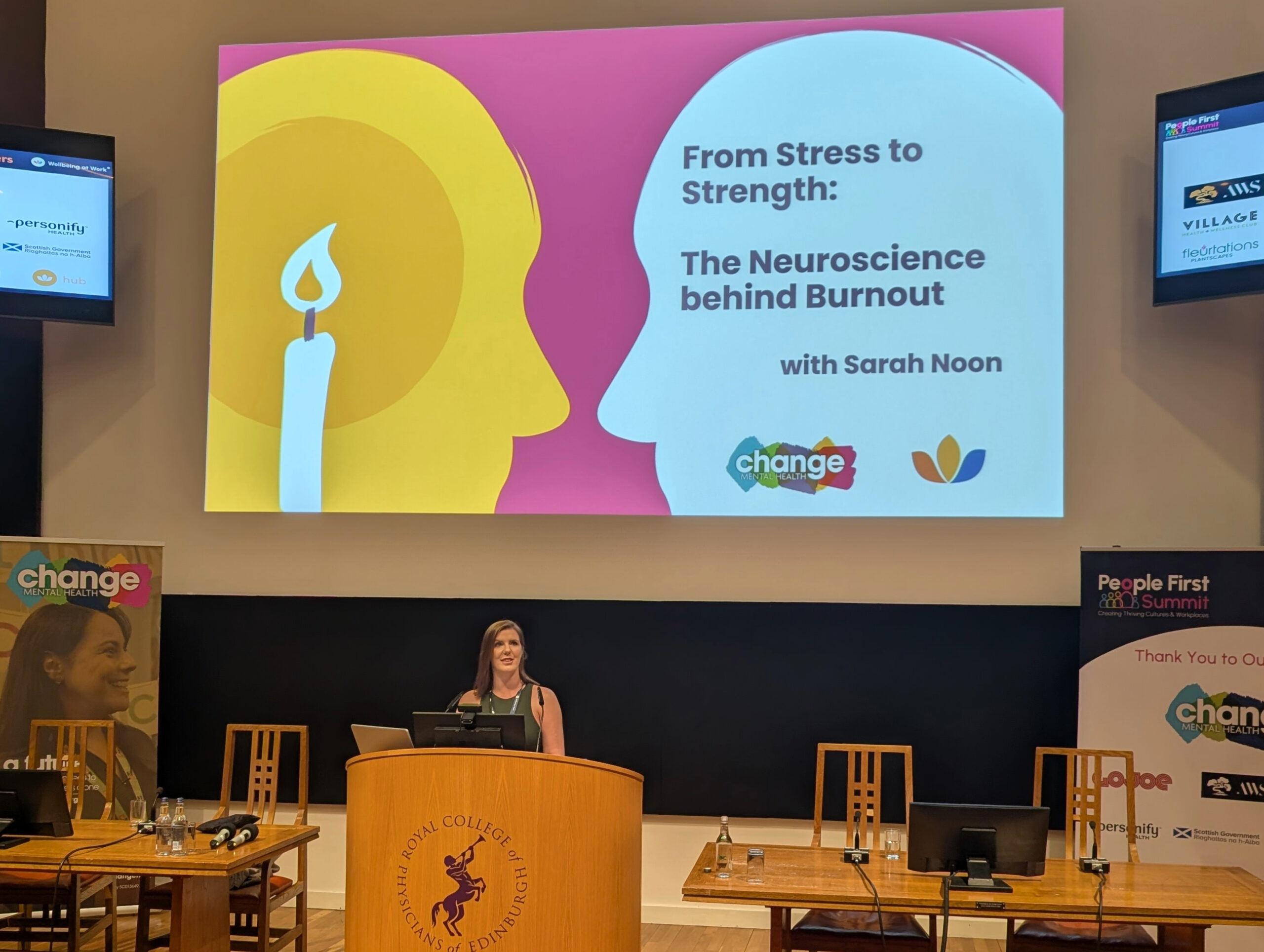Co-production in mental health: benefits, challenges and real-world use
Co-production means working fully in partnership. This piece explores what it is, why it can be challenging and how it’s used in our Young People’s Programmes.

Traditionally, research has often been done to or for people, not with them. This means researchers have usually decided what to study, how to study it and what questions to ask without involving the very people the research is meant to help.
As a result, there’s often a disconnect between what matters to researchers and what matters to the people affected by the topic. And then co-production emerged.
In this piece, we speak to Ciara Mallon and Hannah Dibnah from our Young People’s Programmes about what co-production is and is not, how they use it in their work and what needs to be improved.
what is co-production?
Co-production is an approach that tries to close the gap. Instead of project leaders working alone, co-production brings together people with lived or living experience – those directly affected by the issue being studied – to work as equal partners throughout the research process.
There’s no single definition of co-production, but it’s generally understood as a way of doing research with people, not just about them. People with lived experience are involved not just as participants, but as collaborators – helping to shape the research questions, design the study, collect data and share the findings.
“Co-production with young people is vital in shaping mental health support because it creates space for their lived experience to inform what support they receive and how this support looks,” explains Ciara Mallon, Engagement Officer for Young People’s Programmes at Change Mental Health.
While the idea behind co-production might sound easy in theory, in practice co-production is much more complicated. Ciara adds: “Not all participation is equal. In fact, involvement can happen at different levels, from very limited to fully collaborative.”
levels of involvement: the ladder of participation
One helpful way to understand this is through a model called Arnstein’s Ladder of Participation. It’s often used to show how power is shared (or not) in research and decision-making.
Here’s a simplified version of the ladder:

- Lower rungs (like manipulation or education): People are not really involved. They are told what the research is about, but don’t have a say.
- Middle rungs (like informing, consulting and placation): People are asked for their opinions, but researchers still make the final decisions. This is often called tokenism – involvement that looks good on paper but doesn’t really shift power.
- Top rungs (like partnership, delegated power and citizen control): This is where true co-production lives. Power is shared, people with lived experience help guide the research at every stage and their voices carry real weight.
challenges in co-production
Co-producing isn’t easy. It takes time, patience and commitment.
For Ciara, it is important to acknowledge that “people who aren’t from research backgrounds may face barriers – like confusing jargon, unfamiliar processes or not feeling confident in academic spaces.” These barriers can lead to unequal relationships where researchers still hold most of the power.
When co-production is done in a shallow or performative way – such as including lived experience panels that don’t influence real decisions – it becomes what some call ‘faux-production’. This is another form of tokenism, where involvement exists on paper but doesn’t result in meaningful change.
is true co-production possible?
This might raise the question if genuine co-production is even achievable. Some approaches say there are deep power imbalances between researchers and community members that can’t be easily undone. This view suggests we often get stuck at the lower levels of the ladder, even when we aim higher.
Others are more hopeful. They believe co-production is possible if relationships are built on trust and mutual respect. Power must be shared – not just symbolically, but in real, everyday decisions and fair compensation must be ensured. This leads to more relevant, impactful and transformative research. When done well, it challenges stereotypes, builds trust and improves both the quality and usefulness of research.
Ciara belongs to the ones who are more optimistic about it, she shares:
“When we share decision-making with young people, especially those from underserved communities, we build programmes that reflect their realities, not just our assumptions. It’s how we ensure our work is relevant, inclusive and truly person-centred.”
This also how we approach co-production at Change Mental Health. We believe that co-production and centring the lived experience voice should lie at the heart of mental health community support and we should strive to achieve it, even when it can be challenging.
our co-production with young people
We are committed to involving people with lived experience in everything we do and one particular area of work in this regard has been working closely with young people to co-produce our Young People’s Programmes (YPP) – Your Resilience and Me&Money.
“Although the original content for Your Resilience programme was developed by adults, we are now actively involving young people to shape existing materials and guide the creation of new, relevant content,” explains Hannah Dibnah, Service Manager for Young People’s Programmes at Change Mental Health.
Mental Health UK identified five priority groups of young people more likely experience poor mental health due to a range of social determinants, including poverty, school disengagement or living in areas of high deprivation. We chose to focus on two groups and conduct our co-production efforts with them:
- Young people living in rural areas
- Young people who are accessing education but who may be at risk of poor mental health.
This is how delivering to the Bridges Project came to be, a Musselburgh charity centre that helps young people take their next steps in life, such as getting back into school, finding a job or getting the help they need.
Reaching this group is especially important, as education is a key pathway to economic independence and a sense of belonging at school can have a positive impact on mental health. Young people who are disengaged from education are often at greater risk of poor mental health and they miss out on the support systems that schools can provide.
“We asked these young people about their experiences, what support they use, the barriers they face in accessing help and invited them to review our materials. All participants were fairly compensated for their time.
“Their feedback was carefully reviewed and is now being used to shape a new and improved version of our programmes.”
, explains Hannah.
Me & Money is another example of our co-production efforts. “It is a programme that was co-produced with young people from the beginning – in fact, the idea came from them,” says Hannah.
In 2023, in response to the cost-of-living crisis and increasing concerns among young people about money, YPP worked with 14–18-year-olds to explore the link between financial stress and mental health. Together, we co-designed and piloted the Me & Money programme. The pilot phase allowed us to test its effectiveness, identify challenges, gather feedback and make improvements ahead of a planned relaunch.
learnings and next steps
Through our co-production journey so far, we have learned that meaningful youth engagement creates more relevant, impactful support, but also that it is an ongoing process.
According to Hannah, “there is still more we can do to truly champion young people’s voice. We need to deepen our commitment by creating stronger, more consistent feedback loops that allow young people to see how their input shapes decisions. We recognise that co-production isn’t a one-off activity.
“It’s a long-term, evolving partnership, especially as young people’s mental health needs continue to shift with changing social, economic and cultural pressures. We’re committed to adapting with them, by ensuring their voices not only inform our work but remain central to shaping it at every stage.”
At Change Mental Health, we believe the best ideas come from working with people, not just for them. More and more, co-production, where everyone has a voice and works together, is becoming the gold standard in research and charity work. We are happy to be committed to working with people, whether that is to improve our Young People’s Programmes or other services, to ensure everyone’s voice is heard.
support
Our National Advice and Support Service can help you and people you care for with mental health concerns and money worries.
We can link and signpost you to relevant local and national support, including our own Change Mental Health services, as well supporting with debt, grants and benefits.
The service is open Monday to Friday, 10am to 4pm (closed for lunch between 12.30pm to 1.30pm). Contact 0808 8010 515, email advice@changemh.org or fill in the form on the service webpage.
For full details about the service, visit the National Advice and Support Service webpage.
If you are interested in partnering with us, and bringing Me & Money to the young people you work with, please contact: youngpeople@changemh.org





